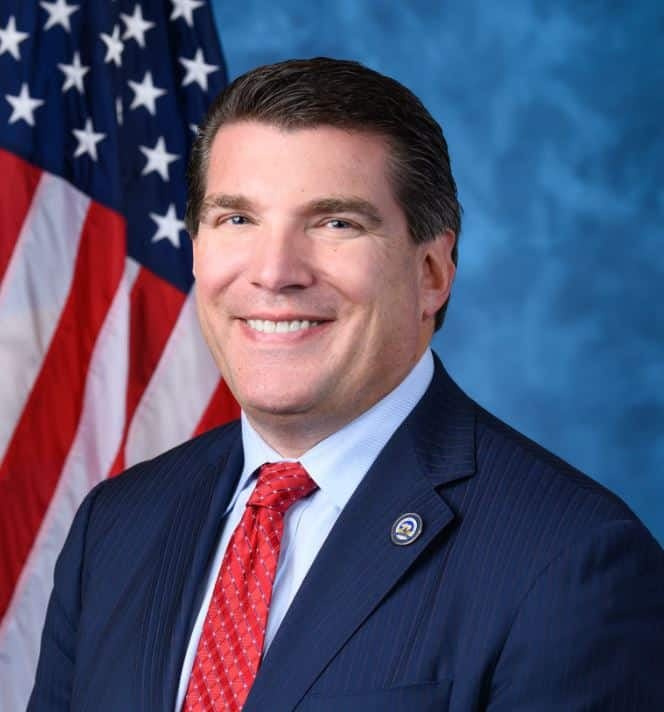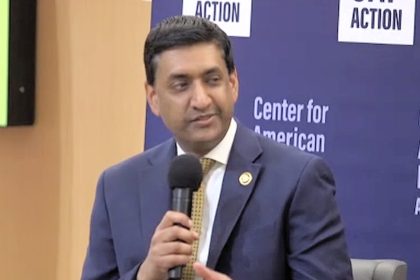Policymakers Weigh Consequences of Regulating AI

WASHINGTON — As emerging technologies reshape the labor market, policymakers face the challenging task of addressing the issues of job disruption, inequality and fostering innovation. The advent of artificial intelligence, blockchain and other disruptive technologies has raised concerns and garnered attention from lawmakers worldwide.
Some areas, like the EU, are attempting to categorize technologies according to risk, with some high-risk cases potentially banned. Others, like Great Britain, are promoting themselves as AI innovation hubs. The U.S. is still somewhere in the middle.
“So many people are afraid of it quite frankly,” Rep. Jay Obernolte, R-Calif., told the Bipartisan Policy Center during a recent discussion on preparing the workforce to adapt to changing technologies.
“I think generative AI is going to be completely transformative in a lot of different workplaces,” Obernolte said. “It has the potential to be incredibly beneficial to humanity.”
While governments around the world rush to establish regulatory requirements for AI, Obernolte suggested the U.S. should focus on differentiating between disruption and harm.
“Like any technological revolution, AI is going to be extremely disruptive — socially and economically disruptive,” he said. “It’s very important, before we regulate, to ask ourselves, why are we regulating? What do we hope to accomplish? In the case of AI, I think it’s very clear. … We need to mitigate consumer harms … but if we misinterpret our role and instead try and prevent this disruption, then we are going to miss out on all of the benefits that AI is going to bring us.”
He stressed the challenge for lawmakers is to protect against the potential harms of technologies without preventing the explosion in productivity or prosperity that it has the potential to bring.
“The EU has gotten it wrong.”
Obernolte cautioned against adopting a centralized regulatory approach similar to the EU’s, favoring a more flexible and collaborative “hub and spoke” model.
Currently, a number of agencies provide guidance for AI in the U.S. The Commerce Department’s National Institute of Standards and Technology has a voluntary AI Risk Management Framework, the National Telecommunications and Information Administration is gathering input for AI regulatory guidance, and the Federal Communications Commission and Education Department are also considering specific use cases.
Rep. Robin Kelly, D-Ill., also shared her workforce development and bias expertise with BPC. She recently co-sponsored the AI Accountability Act, which aims to enhance transparency and collaboration in AI development.
“I believe that this legislation will help us to better see where we all are and where we are working together or not working together,” she said.
“We need to ensure that AI is being developed responsibly … and there needs to be a robust effort to train the public on AI and ensure tools are accessible to large companies and small businesses as well. I expect in 10 years, people will be … much more educated about it.”
Kelly, acknowledging that many people are afraid of the potential job losses brought about by AI, emphasized the importance of education and awareness, particularly in underserved or unserved communities. She also hopes education can alleviate biases that may be introduced in commonly used technologies, such as facial recognition and automated resume screeners.
To mitigate biases, she and Obernolte agreed that policymakers need to promote a diverse workforce in AI development, ensuring that a wide range of perspectives are considered, including exposing young people to STEM careers and encouraging interest in cybersecurity to contribute to a more inclusive and unbiased AI ecosystem.
“We have already seen in the development of a couple of commonly used technologies the unintentional introduction of bias,” Obernolte said. “When we discover biases, we do our best to correct those biases.”
And while Kelly hopes for greater equality when it comes to the revolutionary potential of these technologies, Obernolte said that he is focused “on equality of opportunity not necessarily equality of outcome.”
“As long as all of the ships are being lifted, and everyone has the opportunity to benefit, I think we will have succeeded,” he said.
You can reach us at [email protected] and follow us on Facebook and Twitter
























